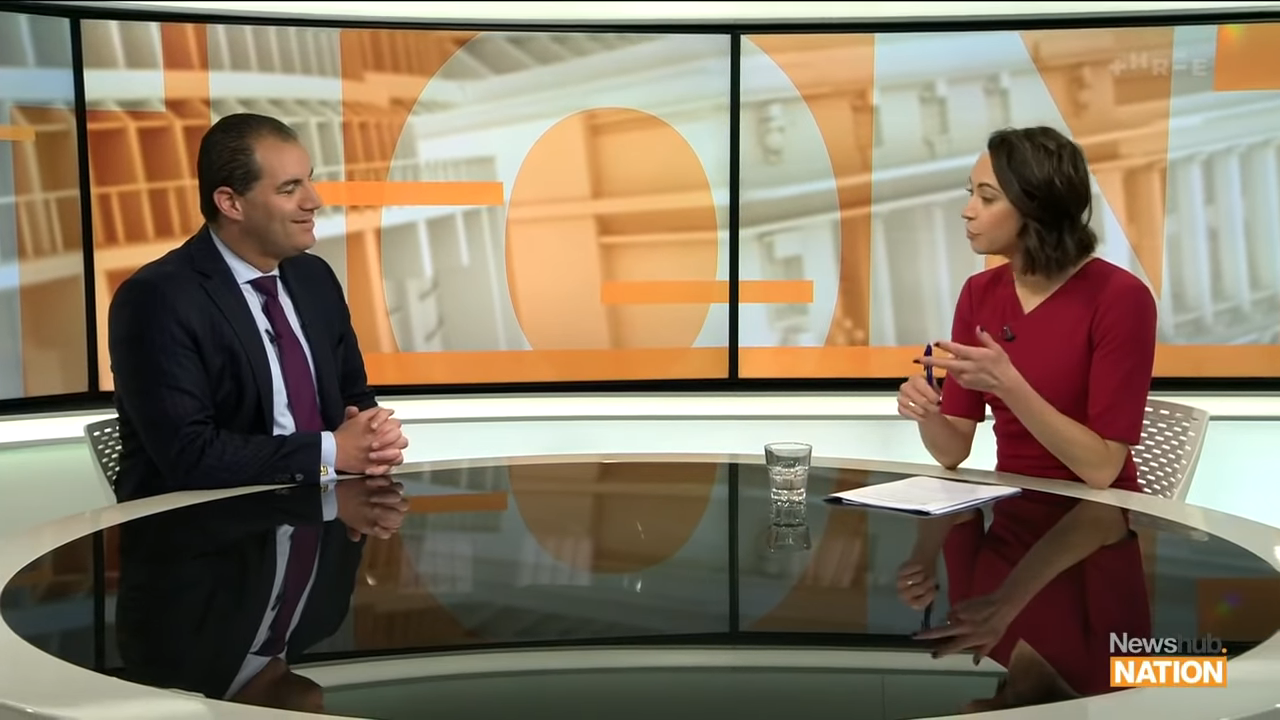OPINION
Jacqui Van Der Kaay
Jacqui Van Der Kaay is a PhD student at Victoria University of Wellington. She is a former journalist, holds a Masters degree in Political Science from Victoria University of Wellington and has a specialist interest in political leadership, voter behaviour, immigration and how social media affects democracy.
It’s a shame that New Zealand filmmaker Tony Sutorius wasn’t able to secure enough funding to make a full-length documentary about one of New Zealand politics’ biggest scandals in recent history – the Jami-Lee Ross saga.
That’s not to say that his short documentary – Elements of Truth – isn’t worth watching. It’s more that its focus on Ross’ efforts to rekindle his political career in 2020 with conspiracy theorist Billy Te Kahika tells just part of the story.
For those who need reminding, former National MP Jami-Lee Ross, a career politician, was forced to resign from the party after allegations of inappropriate behaviour towards staff and colleagues, including extramarital affairs. He then accused his leader – at that time Simon Bridges – of corruption. He made the accusations after publicly releasing secretly recorded conversations between Bridges and himself. The accusations spectacularly backfired with Ross being charged with fraud over political donations. The episode took a significant personal toll on Ross who was admitted to a psychiatric institution. He was later found not guilty of fraud.
In 22 minutes, the Elements of Truth documentary gives viewers a fascinating insight into political party Advance New Zealand’s unsuccessful campaign to enter parliament in the 2020 election. Much of the focus is on Ross and how he struggles to meld conspiracy theorist Billy Te Kahika’s wild statements into his desire to get back into Parliament. It also lays bare his infamous television interview with Tova O’Brien after which left Ross’ reputation in tatters.
It also captures Ross’ view of politics in some surprisingly candid statements. “Look, I think you can stretch the truth but still be true,” he says early on in the documentary. Later he says “I guess I use more politicians language which they sometimes don’t like,” while trying to tone down Te Kahika’s anti-immigration stance which doesn’t align with their party’s policy.
Sutorious has some interesting observations about how New Zealanders judge their politicians. At a Q and A session after the film’s opening screening, he said “I think all of us, collectively, are a touch hypocritical, in wanting our politicians to be as pure as the driven snow but then smashing them if they are.”
It does raise an interesting question about whether New Zealand voters hold their elected representatives to too high a standard. Research in the United Kingdom found that citizens there did expect politicians to be held to higher standards than other citizens. Interestingly, they also found that citizens valued politicians’ honesty over being successful and hard-working. What the research found, however, was that ethical and integrity issues negatively impact on people’s views of politicians and on their level of engagement in democracy.
The 2020 election campaign coincided with the Government’s response to the pandemic, and while it was before the occupation on Parliament’s lawns, the documentary captures how Advance New Zealand sought to capitalise on the anti-Government sentiment that was starting to build at that time. The opening scene shows a public meeting in which the MC talks about “Making New Zealand great again” and how great it was to be part of a “people’s movement”. Sound familiar?
The Advance Party gained 20,000 votes in the 2020 election. It is Sutorious’ view that the majority of those were people who felt they weren’t able to find a place in New Zealand’s more mainstream political party system. It is likely that since the film was made, the number has grown. And the question remains: Who represents them?

